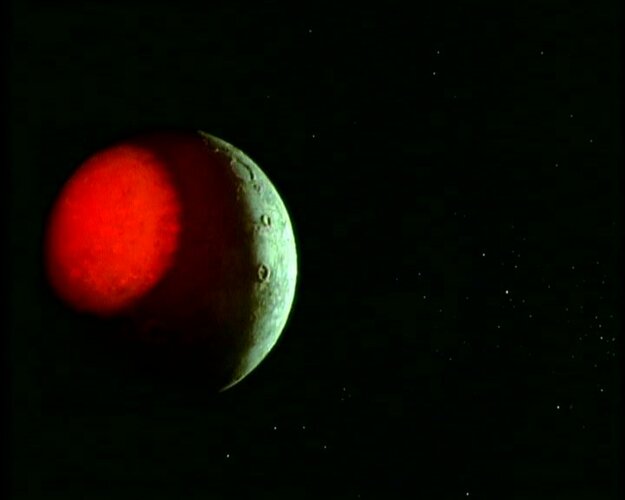Dilandu
I'm dissatisfied, which means, I exist.
USSR planned the nuclear blast on Moon also (the "E-3 project"). The main goal was to present the observable proof of Soviet probe reaching the Moon - Soviet leadership suspected that Western media may start to purposely dismiss the Soviet claims of space sucesses for propaganda reasons. The nuclear blast on the Moon was viewed as an efficient way to demostrate both the space and military capabilities of USSR.
The probe was designed and a model was build in 1958 (as engineers recalled, it looked like an old naval mine, with detonation sensors all around - so it would not require any precise stabilization). But doubts arise about the E-3 program:
* The first doubt was about safety - the only available launcher, the R-7 rocket, was not completely reliable. In case second, or third stage suffered a failure, the probe with nuclear bomb would fell somewhere on Earth. And what if it would fell on some Western country? The political and diplomatic consequences would be drastic.
* The second doubt was about the actual ability to observe the blast. Soviet scientists calculated the brightness on the blast in vacuum, and concluded that such a short flash most likely would not be noticed, and could be missed even if peoples would expect it. And since nobody was sure, how exactly Lunar surface is composed - nobody could say, would the resulting dust colud be observable from Earth.
So the E-3 project was soon abandoned by initiative of it's own author, Y.B. Zeldovich.
The probe was designed and a model was build in 1958 (as engineers recalled, it looked like an old naval mine, with detonation sensors all around - so it would not require any precise stabilization). But doubts arise about the E-3 program:
* The first doubt was about safety - the only available launcher, the R-7 rocket, was not completely reliable. In case second, or third stage suffered a failure, the probe with nuclear bomb would fell somewhere on Earth. And what if it would fell on some Western country? The political and diplomatic consequences would be drastic.
* The second doubt was about the actual ability to observe the blast. Soviet scientists calculated the brightness on the blast in vacuum, and concluded that such a short flash most likely would not be noticed, and could be missed even if peoples would expect it. And since nobody was sure, how exactly Lunar surface is composed - nobody could say, would the resulting dust colud be observable from Earth.
So the E-3 project was soon abandoned by initiative of it's own author, Y.B. Zeldovich.






